cocaine powder
$350.00 – $13,500.00
95,7% PURE COCAINE
buy cocaine online
buy cocaine online, crack cocaine is a powerful and highly addictive stimulant drug. It has had a significant impact on communities worldwide. This article aims to provide a comprehensive understanding of crack cocaine, including its definition, history, chemical composition, methods of use, effects, tips to buy cocaine online, addiction and dependency, treatment options, and legal status.
What is Crack Cocaine?
To buy cocaine online, you must understand the substance and how it works. It is a highly addictive form of cocaine chemically processed into a crystallized rock-like substance. It is typically smoked, delivering an intense and immediate high to the user. Crack cocaine is derived from powder cocaine, but the two substances differ in composition and method of use. buy cocaine online
The substance is created by mixing powder cocaine with water and sodium bicarbonate, forming solid crystals. These crystals are broken into small chunks or rocks called “cracks.” The medication is mainly smoked in a glass pipe or heated on aluminum foil. This method allows the crack to be rapidly absorbed into the bloodstream through the lungs, producing a powerful and short-lived euphoric effect.
The main difference between crack cocaine and powder cocaine lies in their form and method of use. Crack is a solid, crystallized substance smoked in pipes, while powder cocaine is a fine, white powder typically snorted, dissolved, and injected. v
The Short-Term Effects of Crack Cocaine Use
Immediate physical and psychological effects:
- Intense rush or euphoria
- Increased heart rate and blood pressure
- Dilated pupils
- Heightened energy levels
- Agitation and restlessness
- Paranoia
Intense euphoria and heightened energy levels:
- Powerful and short-lived sense of pleasure
- Increased motivation
- Talkativeness
- Enhanced focus and alertness
- Decreased appetite
- Insomnia
- Restlessness
Crack cocaine use leads to a rapid onset of addiction and dependency. The drug’s stimulant properties produce an immediate and intense high, followed by agitation, restlessness, and paranoia. The extreme euphoria and heightened energy levels make it highly addictive, leading users to seek the initial rush constantly. buy cocaine online
However, these short-lived effects often result in negative consequences such as decreased appetite, insomnia, and a general sense of restlessness. The cycle of dependency and the harmful impacts of crack cocaine underline the need for awareness, prevention, and support for those struggling with addiction.
The Long-Term Effects of Crack Cocaine Use
Crack cocaine use produces immediate and intense effects and leads to long-term consequences, both physically and psychologically. These effects can profoundly impact an individual’s overall health and well-being. buy cocaine online
Physical health consequences, including cardiovascular issues:
- Increased risk of heart attack and stroke
- Irregular heart rhythms
- High blood pressure
- Damage to blood vessels
- Respiratory problems, including chronic cough and lung damage
- Malnutrition and weight loss
- Dental issues, such as tooth decay and gum disease
Psychological impact and addiction potential:
- Severe addiction and dependency
- Cognitive impairments, including memory loss and difficulty concentrating
- Mood disorders, such as depression and anxiety
- Psychosis, hallucinations, and paranoia
- Increased risk of engaging in risky behaviors, including violence and criminal activities
- Social isolation and strained relationships
- Financial difficulties and loss of employment opportunities
The long-term effects of crack cocaine use highlight its devastating toll on an individual’s physical and mental health. The cardiovascular consequences pose a significant risk to overall well-being, while the addictive nature of the drug amplifies the psychological impact. It is crucial to prioritize prevention, education, and support to combat the long-term effects of crack cocaine use and help individuals reclaim their lives. buy cocaine online
Some exclusive things you need to know about crack cocaine
Liquid Cocaine: Liquid cocaine refers to a mixed drink unrelated to the drug. It’s important to note that this term is colloquially used for a cocktail and does not involve actual cocaine.
Crack vs. Cocaine: While crack cocaine and powder cocaine derive from the same base compound, their form, potency, and method of use differ. Crack cocaine is a crystallized form typically smoked, resulting in a rapid and intense high, whereas powder cocaine is commonly snorted.
Cocaine Overdose: Cocaine overdose can have severe consequences, including cardiovascular problems, seizures, and even death. It’s vital to be aware of the signs of overdose, such as chest pain, irregular heartbeat, or hallucinations, and seek immediate medical attention if necessary.
Cocaine Withdrawal Symptoms: When individuals stop using cocaine after prolonged use, they may experience withdrawal symptoms. These can include depression, fatigue, anxiety, cravings, and sleep disturbances. Seeking professional support and a supportive environment is crucial during this challenging period.
Pink Cocaine: Pink cocaine is a term that has been associated with synthetic drugs that are often misrepresented as cocaine. These substances can contain dangerous and unpredictable compounds, posing significant health risks. buy cocaine online
Where to buy cocaine online?
Have you been struggling to find a reliable source to buy cocaine online? Scouring numerous websites and forums, only to be disappointed repeatedly? Well, fret not, as we have the perfect solution for you! Look no further than Medhigh Supplies, the trusted online venue for all your cocaine needs.
Gone are the days when you have to risk dealing with shady characters on the street or relying on unreliable sources for your cocaine fix. With Medhigh Supplies, you can rest easy knowing that you are always getting a pure and authentic product. They pride themselves in providing high-quality cocaine sourced from trusted suppliers and undergo rigorous testing to ensure maximum potency and purity.
Furthermore, their easy-to-use website and hassle-free ordering process make purchasing your cocaine a breeze. With just a few clicks of your mouse, you can have your cocaine delivered to your doorstep discreetly and securely. And with their excellent customer service, you can rest easy knowing that any questions or concerns will be promptly address. buy cocaine online
Conclusion
If you want to buy cocaine online safely and securely, look no further than Medhigh Supplies. With their reputation for providing genuine and high-quality products, you can finally enjoy your cocaine without worries or hassles. So why wait? Visit their website today and start enjoying the ultimate convenience of buying your cocaine online!
Frequently Asked Questions (buy cocaine online)
What are the signs of crack cocaine addiction?
Frequent use of crack cocaine despite adverse effects, obsession with getting and using the drug, withdrawal symptoms upon stopping use, monetary issues associated with drug use, changes in behavior and mood, and neglect of obligations and relationships are some indications of crack cocaine addiction.
Is crack cocaine more addictive than other drugs?
Because crack cocaine may reach the brain quickly and induce pleasurable solid experiences, it is very addictive. Addiction, however, can differ from person to person and depends on the kind and quantity of drugs consumed.
Can crack cocaine use be fatal?
Due to its adverse effects on the heart, lungs, and brain, crack cocaine consumption can be lethal. Risks include respiratory failure, heart attacks, strokes, and overdose. buy cocaine online
How long does crack cocaine stay in your system?
Some variables, including dosage, frequency, and personal metabolism, affect how long crack cocaine stays in the body. It can, nevertheless, persist in the system for up to four days.
Is cocaine a stimulant or depressant?
Cocaine is classified as a potent central nervous system stimulant. It increases the activity of certain neurotransmitters, particularly dopamine, leading to heightened alertness, increased energy, and euphoria. The stimulating effects of cocaine make it distinct from depressant substances, which slow down the CNS.
Can you smoke cocaine?
Yes, cocaine can be smoke. However, tobacco cocaine typically refers to the use of crack cocaine, a form of cocaine that is chemically processe into solid crystals. Crack cocaine is commonly smoke in a pipe or heat on aluminum foil, allowing the vapor to be inhale and rapidly absorb into the bloodstream through the lungs.
Are there any medications to help with crack cocaine addiction?
Various drugs, including antidepressants and antipsychotics, can help manage the effects of crack cocaine addiction. There is no one-size-fits-all strategy for treatment, though, so it’s crucial to speak with a medical expert for individualized answers. Addiction treatment has also seen success with behavioral therapies like cognitive-behavioral therapy. buy cocaine online
| Quantity | 10 grams, 20 grams, 50 grams, 100 grams, 250 grams, 500 grams, 1 kilogram |
|---|



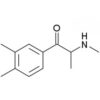

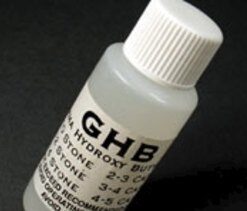
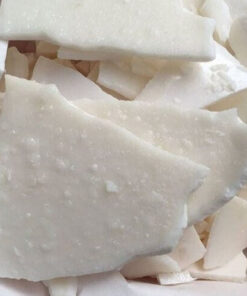
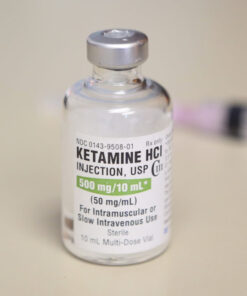



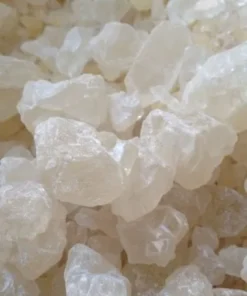
Reviews
There are no reviews yet.